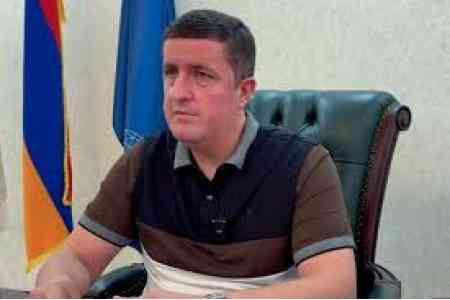


ArmInfo.The former management of Electric Networks of Armenia CJSC had suggested to the Public Services Regulatory Commission (PSRC) to consider reducing electricity tariffs. David Ghazinyan, former head of the company and a member of the coordinating council of the "In Our Way" movement, told journalists on October 29.
According to him, the corresponding application was submitted to the PSRC on June 6 of this year. The proposal was based on the fact that the CJSC had accumulated a positive balance of 6.3 billion drams, which was planned to be used for these purposes. However, the PSRC rejected the initiative. The PSRC justified the refusal by citing the fact that the application was submitted in the first half of the year, requiring another six months to analyze the situation for potential backfires.
"I disagree with this statement, primarily because who else but the PSRC could have information about the balance in the power system, much less in the event of force majeure," Ghazinyan noted, suggesting that the refusal was politically motivated. Ghazinyan believes that it is precisely this political motive that will ultimately lead to the company's license being revoked. "If a decision is made to revoke ENA's license, then, according to the energy law, the state is obligated to offer the owner a three-month offer to buy the company back at market price plus 15%. This amounts to several hundred million dollars. If external borrowing is used for this purpose, then 'we will all be paying for it,'" Ghazinyan said.
The former head of the CJSC noted that, as a rule, tariffs are changed once a year, but if the company requests it, this can happen twice within a year. Meanwhile, according to the Public Services Regulatory Commission, it is more appropriate to change the tariff only once at the end of the year, when more complete information on the state of the power grid and the cost of electricity is available. The Commission's experts believe that a surplus of 3.6 billion drams will only allow for a tariff reduction of 0.5 drams per 1 kWh of electricity. Ghazinyan categorically disagrees with this, believing that the funds provided would be sufficient to reduce the tariff by 1 dram.